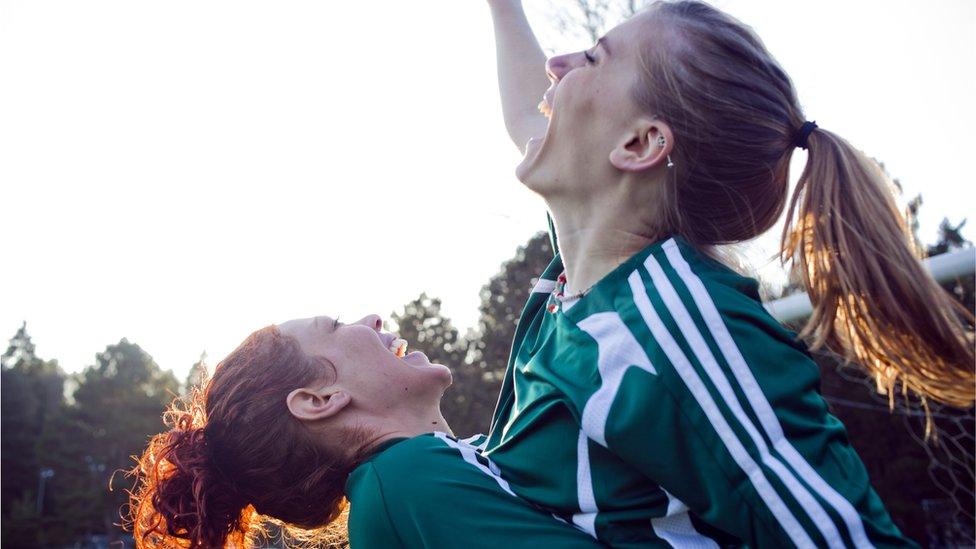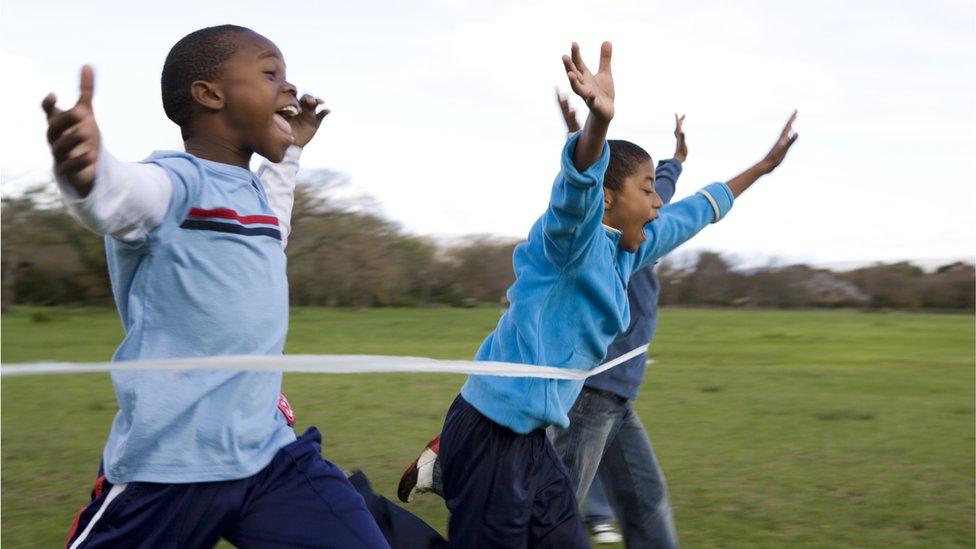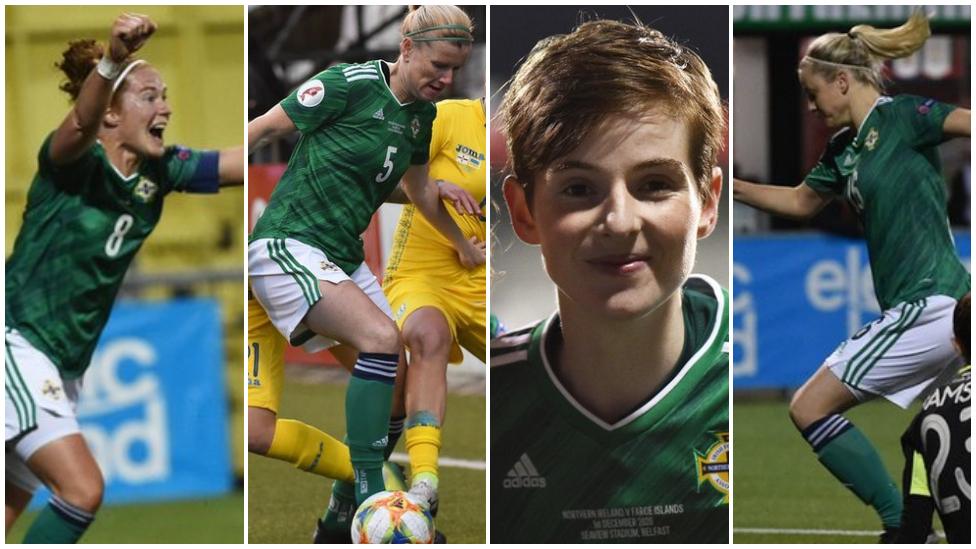Female role models 'vital' for girls in sport, Stormont research shows
- Published

Female role models are vital to encourage more girls to play sport and take part in physical activity.
That is suggested in newly-published research from the Stormont Assembly.
It also said Northern Ireland has the lowest proportion of children taking the recommended amount of physical activity in the UK.
"Research has shown that attitudes to physical activity and sport started in youth tend to remain into adulthood," the paper said.
It also warned that each year physical inactivity accounts for approximately 2,500 deaths in Northern Ireland.
Northern Ireland women's football team recently qualified for the European Championship finals for the first time.
There have been other notable successes in recent years for female athletes like swimmer Bethany Firth and the Ireland women's hockey team, for example.
The assembly research paper, entitled Female participation in sport and physical activity in Northern Ireland, said role models were vital to encourage girls to take part in sport and physical activity.

NI has the lowest proportion of children taking the recommended amount of physical activity in the UK, according to the research
"Studies have suggested that the lack of female sporting role models has contributed to the perception that sport is unfeminine, resulting in the tendency for girls and women to drop out of sport and physical activity, reinforcing a lack of interest in women's elite sport," it said.
The paper was written before Northern Ireland qualified for the Euros.
'Gender gap'
The research provides an overview of a number of studies into the level of participation in sport by women and girls in Northern Ireland.
The paper suggests that although there has been an increase in the number of women playing sport in Northern Ireland more men than women play sport.
The "gender gap" can be traced back to the early years of post-primary school.
"The difference in participation rates between boys and girls starts to emerge in year eight," the paper said.
"Children aged 10 to 18 in Northern Ireland are reported as having the lowest rates of physical activity in the UK."
"Although 59% of girls were aware of the recommendation to partake in 60 minutes of moderate to vigorous activity per day, only 7% reported involvement in sport of physical activity every day of the previous week."
Those figures are based on a study carried out by experts from Ulster University and other Irish universities in 2020.
A separate study by the Northern Ireland Statistics and Research Agency (Nisra) suggested that while 13% percent of 16-year-old boys were achieving the recommended amount of 60 minutes or more of physical activity each day, only 5% of girls of that age were.
'Fewer than one in 10 aware of guidelines'
The assembly research paper said that comparatively few people in Northern Ireland, male or female, were aware of the recommended amount of physical activity.
"The recommended amount of physical activity for adults is 30 minutes of physical activity per day over the course of five days in each week," it said.

Last week Northern Ireland's senior women's team celebrated qualifying for Euro 2022
"Children are recommended to undertake at least 60 minutes of physical activity per day."
"However, studies have demonstrated that 8% of adults in Northern Ireland are aware of how much physical activity is recommended for health benefits."
That means fewer than one in ten adults is aware of the recommended guidelines for physical activity.
Lack of confidence, health or money
Physical activity can include things like brisk walking or cycling so does not just mean playing a sport.
The assembly paper said: "49% of women in Northern Ireland reported that they did not participate in sport and physical activity during the year of 2019/20."
That meant sporting participation rates for women in Northern Ireland were lower than levels reported in most of the rest of Europe.
The paper said that previous studies had shown that things like self-consciousness and a lack of role models in leadership positions and the media could discourage girls from playing sport.
Other barriers to female participation included a lack of confidence, poor health and injury, cost, access to facilities and time.
The paper said there were a number of strategies to try to increase the number of women and girls playing sport.
However, it said that of 20 actions in the Sport Northern Ireland draft corporate plan for 2020 to 2025, none "directly mentions targets to increase female participation".
Meanwhile, a separate paper also published by the assembly suggests that people with disabilities in Northern Ireland also have lower sport participation rates than the rest of the UK and Ireland.
Related topics
- Published16 April 2021
